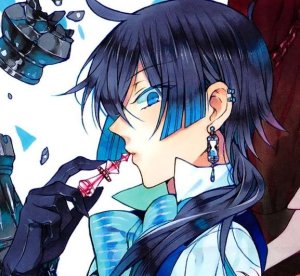
Cet avis était-il utile?

Good Morning Call: Our Campus Days
4 personnes ont trouvé cette critique utile
Let's start with the things I liked. First and foremost, I appreciate that the growth of the characters (from High School to College) was paired with a bit more emotional complexity when it came to sentimental conundrums. The side characters, which I liked a lot in the last season, were a delight again in this one, but mainly for three new additions: Natsume, played by Sugino Yosuke, Saeko, played by Takahashi Maryjun, and Nanase, played by Sagara Itsuki. Natsume might have been my favorite character from the whole season, but the other two were also very interesting, and here lies my main problem with this drama: the side characters seem more like leads than the actual leads, for the narrative of the story, because a lead isn't made of likability or charm, it's made of development and action.
While the main leads, Nao and Uehara, go around in circles and have issues that always end up being resolved by going back to where they started, it's these side characters the ones that are put through tests that develop their personalities and make them evolve in the story. These side characters are allowed to make mistakes, which are seen as mistakes by the story, and learn new things to end up in a different place than where they used to be in the start. Natsume has to go through a very interesting path between falling in love and being loyal to his best friend by acknowledging that his best friend is making bad choices regarding the girl they both love; Saeko faces what might be her first real love while managing her career and dreams and trying to fit both in her life and Nanase has to choose whether to tell the guy she loves how she feels or remaining friends, knowing his heart possibly lies elsewhere. These situations add a level of narrative complexity to what we had seen in the previous season, following the age of the characters (and maybe the target audience) with issues and questions that are also more grown up. That, like I said, I'm very appreciative of.
The leads, though, I can't say much for them. I feel that because of the need to keep this trope alive and to keep these two in the dynamic that is so popular with romantic dramas (happening since the days of Hotaru No Hikari or Hana Yori Dango and remaining nowadays), they lose the agency to change and evolve as characters. The issues in their relationship are mainly about self-esteem (which is a topic that transcends these two, it also involves Natsume, Saeko, Nanase, Marina and Mitsuishi), but the ultimate idea, as stated in the drama, it that "trusting the other one loves you is more important than trusting yourself", which I'm absolutely not fond of, but regardless of my personal opinion on the idea, what it does for the story is that the changes and actions that Nao and Uehara do are incredibly small compared to the rest of the characters, which shouldn't be so because they are the leads. They do have issues and they do make choices, but remain more or less in the same places without having to change much at all.
I feel that this drama has the intention to go much further but ultimately the need to keep this trope alive, as well as the "will they won't they" (which should have been dust by now by having them in an actual relationship, but remains there because that's their dynamic), is setting it back. There are ways of making them evolve without changing the essence of their character dynamic, but I don't feel the drama achieves it.
Ultimately, I really like the dimension of the characters and the fact that, finally, we've moved past this "I hate this girl because the guy I like likes her instead" and we have a lot more complex and realistic relationships, where friendship is explored just as much as romance, for the male and female characters, and that's a great thing to see indeed and worth the watch.
If you liked the first season, I'm sure you'll love this one, and if you didn't, maybe give it a chance because it has a bit more in store than you'd expect.
Cet avis était-il utile?

Ossan's Love Returns Telasa Spin Off: Forbidden Gout Temps Nouveau
3 personnes ont trouvé cette critique utile
Cette critique peut contenir des spoilers
I've already posted a lengthy review on OL Returns with my feelings on the overall season, so this is going to be just a note for those trying to figure out what's going on with the spin off/side-stories situation. There are two side stories/special shorts (labeled here as “spin offs”) of Returns. One of them (this one: Forbidden Gout Temps Nouveau) consists of two episodes and can be found in some places labeled as 9.1 and 9.2. The other one (Haruta to Maki no Shinkon Shoya) is only one episode and can be sometimes found as a “special clip”.
This particular spin off (both of these episodes) should probably be watched after the season, to avoid spoilers. If you haven’t watched the series, read with caution the summary, or leave it for after you’ve watched the season to make sure you’ve got the right episodes. The two episodes of this spin off are:
1. One in which Takegawa calls Maki and Haruta on their day off to help with a last minute work issue that Izumi messed up with. Maro is also called. It seems to be set somewhere in the middle of Returns, definitely after episode 6 but before episode 9.
It’s centered on them talking about dates they’ve had: Maki and Haruta mention the double date that is referenced in the main series with Haruta’s mom and her boyfriend, Maro talks about Choko and him going on a date after the wedding, Takegawa talks about Shigen without them yet knowing who he means and Izumi talks about Akito. There are flashbacks included.
This episode is approximately 20 minutes long.
2. One in which Maki and Haruta invite Takegawa, Maro and Izumi over for a hot pot meal. It seems to be placed directly after Maki and Haruta have to take care of Goro, so somewhere around episode 7 of Returns.
They talk about some of the things that happened in the wedding, Izumi explains what he meant when he mistook Haruta and Akito for the first time, Maro does a party trick that goes wrong. They also reference and there is a resolution to a sort-of-argument Haruta and Maki had about who fell for the other first.
This episode is approximately 16 minutes long.
Both of these start and end with Maki and Haruta being domestic and soft. I hope that helps clear out some stuff for those who might be as confused as I was! I’ll leave the explanation of the other spin off to the review section of that one.
Cet avis était-il utile?

The drama follows the story closely and, in its short run of 7 episodes, covers from the very first chapter/episode to the preamble to the InterHigh tournament. If you haven't seen the anime, read the manga or watched the stage shows, you'll grasp the story fine, but you're gonna be left with a pretty considerable cliffhanger in the last episode. I wonder if their intention was for viewers to get interested in YowaPeda in general or if they're interested in making another season. All in all, it's a good way to get into a very good story, if you're unfamiliar with it, a shorter way than the anime, and if you're a fan, you'll enjoy how closely it depicts it. I personally felt some scenes were stronger in live action form, so watching them again offered perspective, whereas it was questionable in other aspects and posed some limitations.
Even though the cast is mostly compromised of actors of the stage play reprising their roles, the aesthetic is less theatrical and meets the characterization half-way between realistic and a close depiction. There's a few obvious wigs but, for the most part, it's considerably toned down, if you've seen the stage characterizations. Some performers do look older for their roles, especially Gomoto Naoya reprising his classic role as Kinjou, but we've got Ogoe Yuuki as Onoda, thankfully, and Baba Ryoma as Makishima, so there's that.
The performances are surprisingly very good. Fukazawa Taiga as Naruko and Kimura Tatsunari as Imaizumi were really good, but you have to be open-minded with some of the cheesiness that results from a sports anime/manga live action. This is not aiming for realism, that's not what you'll find here, but the performances are heart-felt and, towards the end, very emotional. I'm not sure if the actual racing translates as well into live action realism as one would want (considering on stage is mostly choreography, not aiming for realism at all), but we haven't really reached InterHigh, where all the techniques and individual traits shine the most, so I can't really judge as harshly for what I've seen. The effects are kind of cheesy, but again, I wasn't expecting that much from this, so for what it is, it's good enough.
I don't know if people who aren't into anime/manga or who have never seen a live action of this kind (low budget-y, related to the stage shows, not aiming for big distributions, etc.) will be as thrilled with it as a fan would be, because I understand most of my good reaction comes from low expectations from past experiences. Still, I do think it does good in showcasing the great story this anime/manga has, it respects its characters and plot and you can see how the actors have experience playing these people and do it well. So maybe it could catch someone's interest in continuing to explore the world of YowaPeda, if they're open-minded enough. For fans, I think it does a pretty good job.
I enjoyed the music, although Koi no Hime Hime Pettanko was changed (I guess copyright might have something to do with it), I loved the opening and ending, I'm pretty sure the ending is performed by the cast, and I'm really glad for that.
All in all, I really enjoyed it as a fan of YowaPeda, all things considered, it was good (we learned things from that Prince of Tennis movie, I see), and if you haven't seen anything YowaPeda and have an open mind for some cheesiness and theatrical characterizations, maybe this can be your incentive to give the Sohoku team a chance.
Cet avis était-il utile?

Omotesando Koukou Gasshoubu
3 personnes ont trouvé cette critique utile
As a high school drama with a team in it, it has a lot of the cliches of the genre: not enough members, conflicted coach, problems with the school, authority figure who somehow finds it personally offensive that these kids want to be happy, bullying, individual small arcs for each character. Yeah, you've probably seen all that before, especially if you're into sports dramas. But where this one goes really right is with the characters and performances.
These kids are, mostly, pretty darn good. Yoshine Kyoko carries the story along very well and, when she needs to convey emotion, she goes for it. All in all, the characters have interesting individual plots, some more than others (this is the third 2015/2016 drama in a row where I see an openly gay character and probably the one which handled it the best out of all three I've seen) and it all results in a very emotional and heartwarming story filled with songs, some of which you may recognize. There is good character development, limited by the amount of episodes, but there's a clear path from start to finish and the drama isn't shy to show hardships and emotion.
All in all, if you're into high school team dramas and want a heartwarming one with some tears in between, give this one a chance. It might make you smile in the end.
Cet avis était-il utile?

I'm gonna say this straight away, I'm not a die-hard fan of Mikasa Ackerman on canon as most snk fans are, but even I can see how what this movie did to her character is a disrespect to canon as much as a missed opportunity for such a talented actress as Kiko Mizuhara. I didn't understand the full extent of the value the friendship between Eren, Armin and Mikasa has until I saw it butchered in this movie. It's not just that they replace Eren's mother deal with Mikasa, they turn Mikasa's undying loyalty to Eren for the exact opposite. Without Armin's grounding and Mikasa's strenght, Eren is half the character, because most of his development is linked to these two. Furthermore, Mikasa's choice to follow Eren in canon is bound by loyalty and emotion, something Eren wouldn't pruposefully take advantage of, and Mikasa's choice is genuine, based on what it meant to her that Eren was there when she lost everything. This Mikasa is reduced to an order-following totally-subdued henchwoman (that apple scene made me cringe) for a guy whose role in the story is not-quite-Levi and not-quite-Erwin and a-whole-lot creep.
I'm not impressed with the fact that the storyline was watered down with such a strong focus in shock value without balancing it enough with character development and plot reveals (the blood I get, I mean, this is SnK, there's gonna be a lot of blood; but I was not expecting the scene with the non-explicit but very clear sexual situations going on there, I mean, I'm not sure there was a reason for that).
Ishihara Satomi is probably the saving grace here, and I'm glad Hange is getting a drama with Satomi starring because yes please. But the rest of the actors aren't at all at fault, I feel they did what they could with what they had but the adaptation and the script didn't work at all on their side.
I really wanted to love this. What a missed opportunity.
Cet avis était-il utile?

Storytelling-wise, the construction of the episode was a bit strange to me, I felt like we had two independent episodes put together, since the first conflict had almost to no relation to the later conflict and to the resolution of the episode. Still, it does provide closure to this class and these characters.
I did really like Matsujun's performance in this one, I'll be saddened not to see his character anymore (I understand that's different in the manga) and Yukie was great once again.
All in all, it's ok, it doesn't add much more to the storyline but it's entretaining to watch.
Cet avis était-il utile?

The idea is pretty interesting and original, not the fact that a person in the Heisei period is transported to the Sengoku period, but the fact that it's a Chef and his creations are going to be pivotal in Nobunaga's campaign through the country. To think that some of the most important choices and relations in history have their outcome infuenced by food is an idea that I can't help but loving. If you think it's too bizarre for you, you've been warned.
As someone who knows very little of Japanese history, this drama was easier to follow for me than Nobunaga Concerto was, because of the narrator's and Ken's (Tama's character) explanations. To people who already know all this, it may be a bit outputting but I appreciated it.
I can't help but comparing it to Nobunaga Concerto in some things because I saw them both back to back and they have similar ideas. Character wise, I found that this one was a little less attractive. The performances weren't all as convincing as I would have wanted, but they're not terrible. Storytelling wise, there are plenty of things still unclear, but since there's another season, I'm giving it a pass for now.
All in all, it's a very entretaining drama, with a nice twist on history without losing its accuracy and that isn't difficult to follow. As a side note, I recommend not watching this if you're hungry, because you're gonna end up craving food almost for sure.
Cet avis était-il utile?

Cet avis était-il utile?

Ossan's Love Returns
1 personnes ont trouvé cette critique utile
Ossan’s Love is a…particular case of a show. It depicts interesting and heartfelt topics but it is, in essence, a comedy at heart. With a specific brand of comedy that tends to be polarizing for jdrama enthusiasts.
Since its release (in 2016, but also its 2018 “first” season), OL depicted both a queer relationship (in the Haruta/Maki couple) and a caricature-style comedy of an older closeted gay man with histrionics, that could be hit or miss with the audience (the Kurosawa character). This duality had its pros and cons, it allowed them to explore an mlm relationship in a more mainstream-ish context for a show at the time, but it had the gimmick to make it all “not so serious” if they wanted to backpedal. It was what it was at the time and it served its purpose.
I don’t know if they ever envisioned OL hitting it off as it did, or the audience being as engaged with the relationship between Haruta and Maki as it was, but you can tell, through the development of the subsequent installments (of this narrative, let’s leave the au out of this) that they became more and more comfortable with the story they were showing and that the landscape of queer content in mainstream media was allowing for more than just comedy bits.
This season, more than any other installment, allowed Maki and Haruta to deal with what it means for them, as a gay couple in a country in which same sex marriage isn’t legalized, to become a family.
Instead of having a season-long conflict to deal with throughout, the plot allows them to deal with different situations alongside the season, which all together help develop not only their relationship as a “married” couple, but also them individually as adults.
I think that the strength of Haruta as a main character, which also allowed OL to stand out from other BL dramas (and jdramas with lgbtq+ content in general), is that he is the protagonist of a coming-of-age story in your 30s, questioning sexuality included. Which, with the social, political and cultural landscape we live in, is incredibly necessary imo.
Haruta’s heartfelt nature and genuine love for what he does is explored this season without him becoming the butt of a joke and his development is, I think, more evident than before. At the same time, Maki’s character shows some cracks in his seemingly perfect disposition and is shown to be more vulnerable and open to learning.
This season brings back characters from season 1, some which were missing from the movie. I should mention that the movie was not referenced at all, not even the characters introduced in it, but I do consider it a stepping-stone into what this season would become narratively.
All of the storylines with the characters from the previous season give something to the main narrative of Haruta’s growth and his and Maki’s relationship. I’ll give a special mention to Chizu who is back and better than ever, now a single mother with a corporate job. Takegawa has probably the messiest storyline and I feared they’d make him a second version of Kurosawa, but they kept it mostly in line.
Kurosawa this season is…less annoying. He’s still comedy relief and still histrionic but his relationship with Haruta and Maki develops in a healthier way (for the most part), until it sort of finds a space. I’m still not totally sure about him, but he was much improved from season 1 and it showed that they were trying to make him evolve and become more than a cartoon-ish character.
The one thing I didn’t like much from the season was the new characters’ narrative. They introduce a new couple of characters (much like they did in the movie, but this time the two characters know each other) with a storyline that I didn’t think fit well in the season.
Don’t get me wrong, adding Miura Shohei and Iura Arata is going to lift the acting bar and it showed, but the tone of their storyline and the way they got involved with the characters we already knew was…somewhat forced for no reason. And, at the end of the day, I’m not sure their inclusion added anything narratively, even if it did in the level of acting.
The tone of what they were serving didn’t match the tone that we had going on, and this show already has a complicated tone to begin with.
At times, the editing and the known histrionics of the show were a bit chaotic but I feel it’s noticeable how they worked hard to try to maintain the identity of the show while not getting stuck in the gimmick or the superficial caricature. Taking into consideration that the writing and directing team was the same, I genuinely think that, with this season, they’ve proven to be more invested in representing a genuine relationship and for the comedy identity of the show not to take away from the subjects introduced and developed. I’m very genuinely pleased with that.
I feel like the show evolved and grew into something more committed to itself.
Watching Haruta and Maki figure out their lives together, what it means for them to be married, how to balance their personalities, talking to each other’s parents, where they set boundaries, what they want from a family together…it all felt very heartwarming and domestic, like they had picked a page from the Kinou Nani Tabeta? book. I feel like the season rewarded the audience with an insanely good level of Communication between these two after all we went through in the previous installments. The way they talk about things and trust each other is *chef's kiss*.
As an added note, we got a cameo from Fujioka Dean (!!!) and from the two protagonists of the Thai drama Moonlight Chicken playing their characters from that show, since those same actors will portray Haruta and Maki in the Thai version of OL. We have a budget this time, fam!
When I finished my OL movie review I said: “If they want a series 3, or another instance of this, they better continue where this left off and ditch the AU ideas, because this is where it’s at”. I am pleased to say that they listened, delivered and I couldn’t be happier.
I don’t know if there’s more OL on the horizon (that last episode felt a bit like a farewell, I’m not sure) but with the trajectory this is taking, I’ll be there to watch it if there is.
Cet avis était-il utile?

Cette critique peut contenir des spoilers
I don't know how to review this movie without mentioning spoilers in it, to be quite honest. Most of the plot is standing on twists, which makes it impossible to offer a review without revealing them. Still, I feel like the movie is worth an opinion, even if I'm super late to provide it. I haven't read Shige's books but, before seeing this movie, I saw Kasa wo Motanai Aritachi wa, for which I also left a review and, for that, I did read a detailed summary. I was in the dark with this one, didn't know more than what the description says, but for my experience with Shige's storytelling, it's very much his thing.
The movie has a twist in the middle of it, which makes you have to re-trace your steps and go back to the start. I appreciated that and, to be honest, I feel like that was the best thing in the whole movie. It's expected of a Shige story but unexpected for a movie like this one, and I don't think I've seen that tool used before in such a way.
I feel like there are a lot of missed opportunities in the second half of the movie, though. It was implied, through this half, that the real Gocchan wasn't like the one Dai had written in his book and performed in the first half. We found out some bits and pieces of his life as an idol, which were far from what Dai had idealized, and I wish that was the core of this part.
I wanted that discovery to be the center of the change, because it's what was shown to us throughout. We saw a very far-removed Gocchan, very private and stoic, very unreachable. This was Dai's idealized version, the one he wrote, the one he wanted to peform, and if the second half would have been a road towards unraveling this mystery and finding what Gocchan was actually feeling in this entretainment medium, if we could see what led him to taking his own life, uncovering the life Dai had always craved for and seeing it for real...that would have made sense.
Instead, the reason is pulled out of nowhere. It's given to this realtionship with a sister who showed up all but 2 minutes, something that makes no sense in the plot and I feel is just there for shock value. That "reveal" to me was not only underwhelming and a bit offputting, it was also in detriment to what the story had been building up to then. There are references to the sister here and there, the song he writes and the way he dies, but that's not enough to justify how much the movie's story was leaning elsewhere.
The second half is filled with these shock values, some of which are, I guess, understandable to showcase the raw nature of showbiz, but even though they add those things, they don't speak about showbiz in the way I feel the movie could have, given the story up to that point. I understand that Shige can't completely throw under the bus the industry that's giving him work but, at the same time, I wish the movie could have made something that made more storytelling sense and fit the theme it was carrying up to that point.
It's an interesting movie, a movie with very good storytelling devices and directorial decisions that make it stand out from the rest. Still, the simplification of its 2nd half made it a bit of a dissappointment to me, not enough to regret watching it but enough to wonder how a better outcome could have been.
Cet avis était-il utile?

As it sounds, it's filled with expected situations: misunderstandings, girls hating the lead because two of the guys who are into her are from a "top 3 most handsome" in the whole school, the male lead hurting her because he "doesn't know how to express his feelings" and "he wants to protect her", the female lead losing a lot of her character once she starts having feelings for him. You know, that questionably somewhat toxic relationship dynamic that, if you're anything like me, makes you wonder why you're doing this to yourself again. There's also a situation between Uehara, the male lead, and his brother and said brother's girlfriend, much like in Please Love the Useless Me, but here it goes around in circles rather than really helping the development of the character. Actually, a lot of the things that happen go around in circles, the same situations happening over and over and the amount of episodes seeming too long for this story. But, like I said, it's not the worst I've seen, not even this year, so there's that.
The bunch of friends Nao, the female lead, acquires and has by her side make the story a bit more worthwhile: her unconditional friend Marina (played by Arai Moe), who is more upset about her friend not trusting her than about boy competitions and is openly interested in both boys and girls without batting an eyelash about it, the well-intentioned yet pretty clumsy Jun (played by Nagasawa Koya) who is rejected by girls on a daily basis yet doesn't become enraged or vengeful at all for it, and my favorite character, Nozomi Kitaura (played by Tezuka Mai), a "Girl Prince" type who isn't really there to become part of the love pentacle situation and offers a tough female perspective to the whole thing, giving a short but extremely memorable speech to Uehara at one point in defense of Nao's situation as a girl and calls him out for thinking that, as a man, he understands her position. Those characters are worth me giving this drama a higher score than I gave to Happy Marriage, although they aren't as prominent in the show for me to give it a higher score than the one I gave to Please Love The Useless Me. All in all, it's passable yet annoying at times, the performances are generally good and it is visually nice looking, plus, it's on Netflix.
Cet avis était-il utile?

Nodame Cantabile: The Final Score - Part I
2 personnes ont trouvé cette critique utile
The acting is still amazing, the music is still superb and the story is still entretaining, yet I felt not much happened plot-wise in this one compared to the specials. I felt the flashbacks dragged for too long and the performances were a bit too many; or maybe it was that, in the specials, they were more clearly used to move the plot along and here I felt they did it only in some instances. This movie is much more through Chiaki's perspective than it is in Nodame's, so I'm hoping that'll arrive in the next one.
That being said, it's still a fantastic movie and extremely entretaining and recommendable. And the music is still and will always be incredible.
Cet avis était-il utile?

Nodame Cantabile Special
2 personnes ont trouvé cette critique utile
The first part focuses more on Chiaki as he faces a competition for the first time, while also figuring out what he can give to music and what makes him stand out from others like him. The second one focuses more in Nodame and how she feels falling behind in a world where music isn't just a hobby but a way of life and faces the question of why she's pursuing it. They both have to walk their paths separately to find out their own answers and, even if there's more romance here than there was in the drama, I loved that their answers are their own and not limited by others.
The music is again superb, once more the heart and soul of the story, and the performances are even better, in my opinion. Ueno Juri does an outstanding job in this and I teared up a bit in the 2nd part.
If you loved the drama, I'm pretty confident you're gonna adore this special.
Cet avis était-il utile?

The story is very good and even though the formula of "quirky girl meets serious boy", the key in the success of that kind of storyline is in the characters themselves. Nodame isn't just a "quirky girl", she's an extremely likeable character, with fears and worries and reasons to be as she is, a girl who likes music as an expression. Chiaki is an over-achiever, who tends to push others in the same way he pushes himself, but who has anxieties and worries that, even if sometimes played for fun, end up being a serious obstacle in his life. The performances of Ueno Juri and Tamaki Hiroshi are superb and succeed in the very difficult task of making animated characters just as relatable in drama form.
Without talking about story-line elements, the change of format from manga/anime to drama has some things that could not translate as well. The violence-driven comedy that is taken not at all seriously in animated form is a bit more difficult to pass in live action, at least to me, especially knowing a past of violence is involved in the storyline at one point. Still, I suppose it's a risk they had to take.
Music in this drama is superb. Music is the heart and soul of this story and this drama respects it faithfully; if you like classical music, this drama is a must.
All in all, I really loved this drama and I understand why it's regarded as a classic (pun intended) even if it hasn't yet been 10 years from its original release.
Cet avis était-il utile?




















